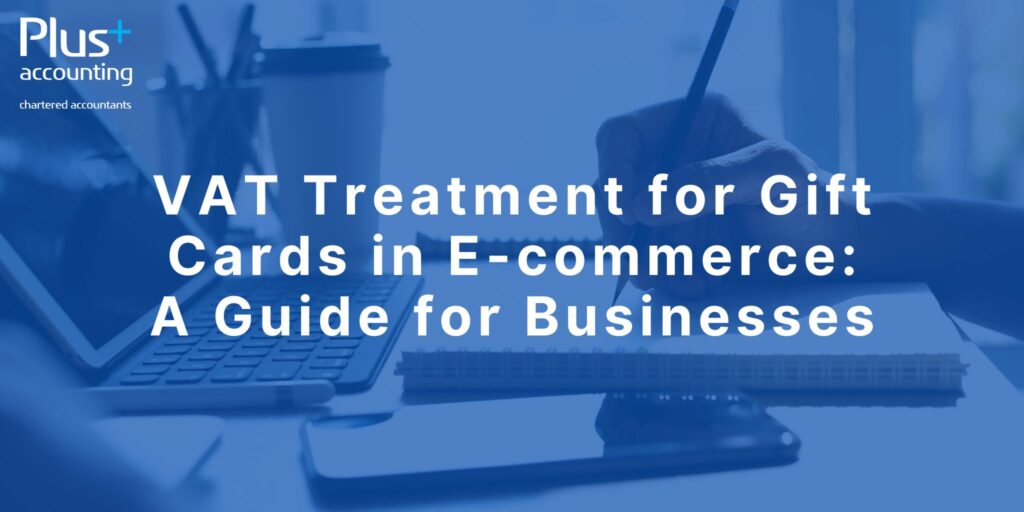In the ever-evolving landscape of e-commerce, gift cards have emerged as a popular choice for both customers and businesses alike. They offer convenience, flexibility, and often serve as a go-to solution for gifting occasions. However, when it comes to VAT treatment, businesses must navigate through regulations to ensure compliance and accurate accounting. At Plus Accounting, our team understand the complexities involved.
We will look into the VAT treatment of gift cards for e-commerce businesses to shed light on this critical aspect of financial management.
Understanding VAT Treatment:
VAT treatment for gift cards hinges on whether they are classified as single-purpose vouchers (SPVs) or multi-purpose vouchers (MPVs). This classification is determined by the range of goods or services the gift card can be redeemed for and their associated VAT rates.
Single-Purpose Vouchers (SPVs):
- SPVs are gift cards that can only be redeemed for goods or services with the same VAT rate.
- VAT is accounted for and paid across at the time of sale of the gift card.
- Income from the initial sale of the gift card should be recorded on the VAT return at the point of sale.
Multi-Purpose Vouchers (MPVs):
- MPVs are gift cards that can be redeemed for goods or services with different VAT rates.
- VAT is accounted for and paid across upon redemption, not at the point of sale of the gift card.
- Income from the initial sale of the gift card should not be recorded on the VAT return at the point of sale, but recognised when redeemed.
- If the gift card can be used for overseas sales, it’s likely to be treated as an MPV, with overseas sales from the UK often being zero-rated for VAT purposes.
Implications for e-commerce businesses:
For e-commerce businesses, understanding the VAT treatment of gift cards is paramount for compliance and financial management. Here’s how businesses can work through these regulations effectively:
Classification: Determine whether your gift cards fall under the category of SPVs or MPVs based on the range of products or services they can be redeemed for.
Accounting Practices: Implement robust accounting practices to ensure accurate recording of income from gift card sales and VAT liabilities in alignment with the classification of the gift cards.
Compliance: Stay abreast of VAT regulations and ensure compliance with reporting requirements to avoid penalties and liabilities.
International Sales: If your gift cards can be used for overseas sales, consider the implications for VAT treatment and seek professional advice to navigate through international tax complexities.
How can we help your e-commerce business?
Gift cards play a significant role in the e-commerce ecosystem, offering convenience and flexibility for both businesses and customers. However, understanding the VAT treatment of gift cards is crucial for e-commerce businesses to maintain compliance and financial integrity.
At Plus Accounting, we specialise in providing tailored solutions to help your business through VAT complexities and optimise financial management practices.
Contact our team to ensure your e-commerce business stays VAT compliant.
Author: Jake Standing, Director, Plus Accounting
Any views or opinions represented in this blog are personal, belong solely to the blog owner, and do not represent those of Plus Accounting. All content provided on this blog is for informational purposes only. The owner of this blog makes no representations as to the accuracy or completeness of any information on this site or found by following any link on this site. Please note that AI has been utilised in generating content for this blog.
Date published: 21 March 2024



